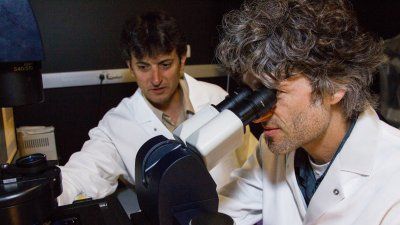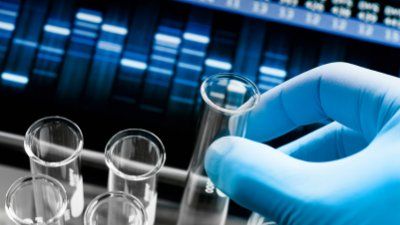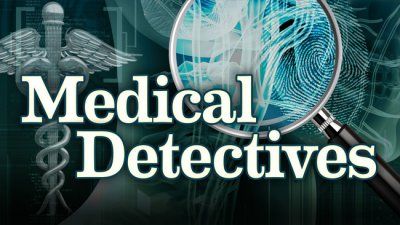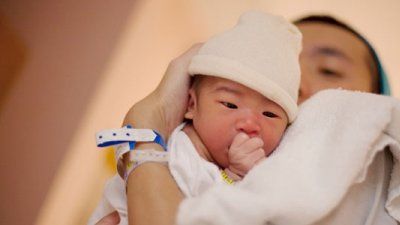University of California San Francisco
-
-
Archive: ExRNA: Decoding Messages Among Cells
Scientists have discovered a type of RNA that could have enormous potential for better diagnosing and treating many types of cancer, Alzheimer's, multiple sclerosis and other diseases.

-
Archive: UCSF, Quest Diagnostics Launch Collaboration to Advance Precision Medicine
UCSF and Quest Diagnostics, the world's leading provider of diagnostic information services, have formed a collaboration to accelerate the translation of biomedical research into advanced diagnostics in the field of precision medicine.

-
Archive: A Lesser-Known Dementia That Steals Personality
-
Archive: Basis Science Wants to Track Your Sleep as Well as Your Activity
-
Archive: Windows XP End of Support Town Halls
If you use the Windows XP operating system then this presentation is for you! Come learn about Microsoft's discontinuation of support of their XP and legacy operating systems and your options to prepare yourself in advance.

-
Archive: UCTV Features Series on UCSF's Medical Detectives
A new video series on UCTV teaches viewers how physicians at UCSF work as detectives.

-
Archive: Study: Increased Healthcare Costs Would Cancel Out Savings From Slashing Food Stamps
-
Archive: Quest Diagnostics, University to Develop Diagnostic Tools
-
Archive: Rare Genetic Mutation Discovered in Tourette Syndrome Family
-
Archive: Seahawks Fans Raising Money for UCSF Children’s Hospital
-
Archive: 49ers Fans Foil 12th Man Photobomb
-
Archive: Unexpected Diagnosis: Some Medical Tests May be Harmful to Your Health
-
Archive: January Issue of Science of Caring Online
The January issue of the UCSF School of Nursing's Science of Caring is now posted online.

-
Archive: Fans of Seahawks, 49ers Raise Money for Children’s Hospital
-
Archive: Stem Cells Used to Model Disease that Causes Abnormal Bone Growth
Researchers have developed a new way to study bone disorders and bone growth, using stem cells from patients afflicted with a rare, genetic bone disease.

-
Archive: Unique Protein Interaction May Drive Most Common Genetic Cause of Parkinson’s Disease
Scientists at the UCSF-affiliated Gladstone Institutes have discovered how the interplay between two proteins in the brain fuels the degradation and death of the class of brain cells, or neurons, that leads to Parkinson’s.

-
Archive: The Best & Worst Diets of 2014
-
Archive: New Mission Bay Family House to Expand Services for Patient Families
As the UCSF Benioff Children's Hospital prepares to relocate to Mission Bay, the nonprofit Family House also is gearing up for a move so it can accommodate twice as many families whose children are undergoing treatment for life-threatening illnesses.

-
Archive: How Much Does A New Hip Cost? Even The Surgeon Doesn’t Know
-
Archive: New Study Reveals the Hidden Health Cost of Cutting Food Stamps
-
Archive: Inside a Beating Silicon Heart
-
Archive: Study Ties Diabetic Crises to Dip in Food Budgets
-
Archive: Personal Health Record Associated with Improved Medication Adherence Read more here: http://www.sacbee.com/2014/01/06/6049361/personal-health-record-associated.html#storylink=cpy
-
Archive: Study: Mexican Americans Develop Problems that Could Lead to Alzheimer’s 10 Years Earlier Than Others
-
Archive: Bay Area's People to Watch in 2014
-
Archive: California Soda Tax Would Save Hundreds of Millions in Medical Costs, Study Finds
-
Archive: Lessons Learned in Diagnostics
-
Archive: Do brain training games really improve your brain function?
-
Archive: Your Aging Brain Will Be in Better Shape If You've Taken Music Lessons
